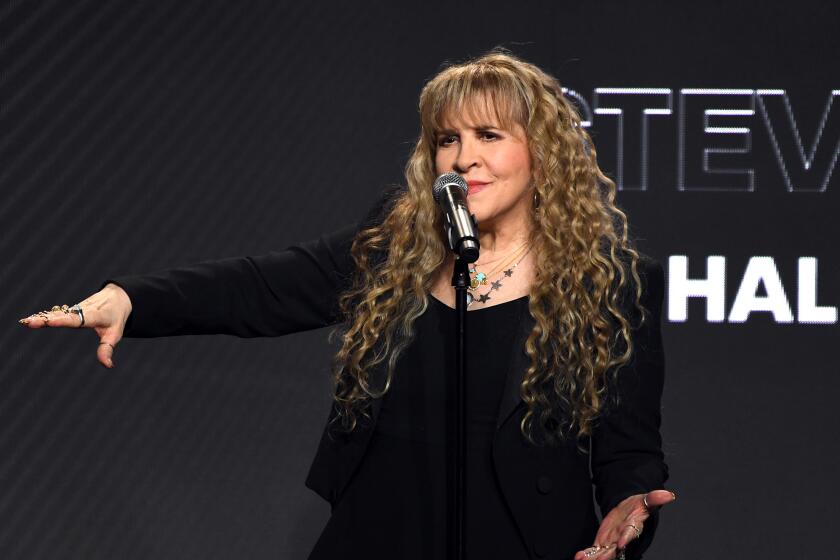Datebook: Getty Villa shows treasures from the Roman villa that inspired its design
- Share via
Exploring the Roman ruin that inspired an L.A. museum and a show inspired by an influential Mexican novel. Here are six exhibitions and events to marinate in as summer approaches:
“Buried by Vesuvius: Treasures From the Villa dei Papiri,” at the Getty Villa. When J. Paul Getty built a museum on his Malibu property in the late 1960s, he chose to model it after the Villa dei Papiri in southern Italy; the luxurious Roman estate from AD 79 was uncovered in 1750. This exhibition presents some of the most spectacular archeological finds from the site — including bronzes, marble statuary and objects from the library of papyrus scrolls that give the villa its name. Through Oct. 27. 17985 Pacific Coast Highway, Pacific Palisades, getty.edu.
Marcus Kuiland-Nazario, “Macho Stereo,” at the 18th Street Arts Center. Kuiland-Nazario has created a new body of work inspired by Mexican author Juan Rulfo’s groundbreaking 1955 novel “Pedro Páramo.” He uses the story, about a man who goes back to his village in search of his father, only to find ghosts, as a jumping-off point to explore issues related to Latino masculinity. Opening night will include a performance. Through July 26. 1639 18th St., Santa Monica, 18thstreet.org.
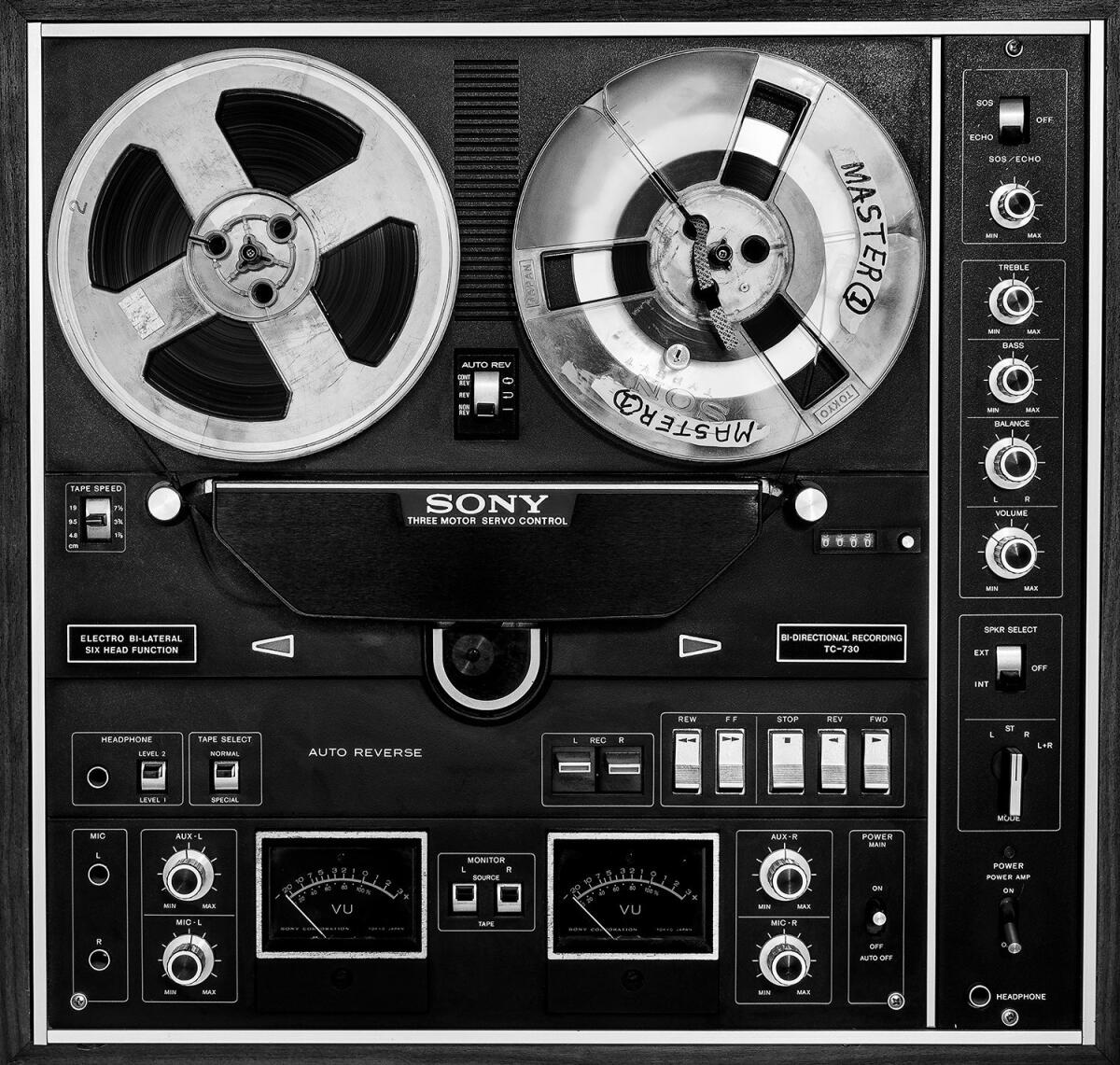
Betty Woodman, “Shadows and Silhouettes,” at David Kordansky Gallery. This posthumous exhibition (Woodman died last year) gathers objects by the painter and sculptor known for her bright, abstracted representations of ceramics and other vessels. The show contains a dozen works that Woodman made in the last decade of her life, when she continued to experiment with the ways objects could be represented. Opens today and runs through Aug. 24. 5130 W. Edgewood Place, Mid-Wilshire, Los Angeles, davidkordanskygallery.com.
“Punch,” at Jeffrey Deitch. Painter Nina Chanel Abney (who recently had a pair of gangbusters shows at CAAM and the ICA LA) has organized a summer exhibition for the gallery that brings together work by 33 artists who all explore the use of the human figure in their work. Opens Saturday at 6 p.m. and runs through Aug. 17. 925 N. Orange Drive, Hollywood, deitch.com.
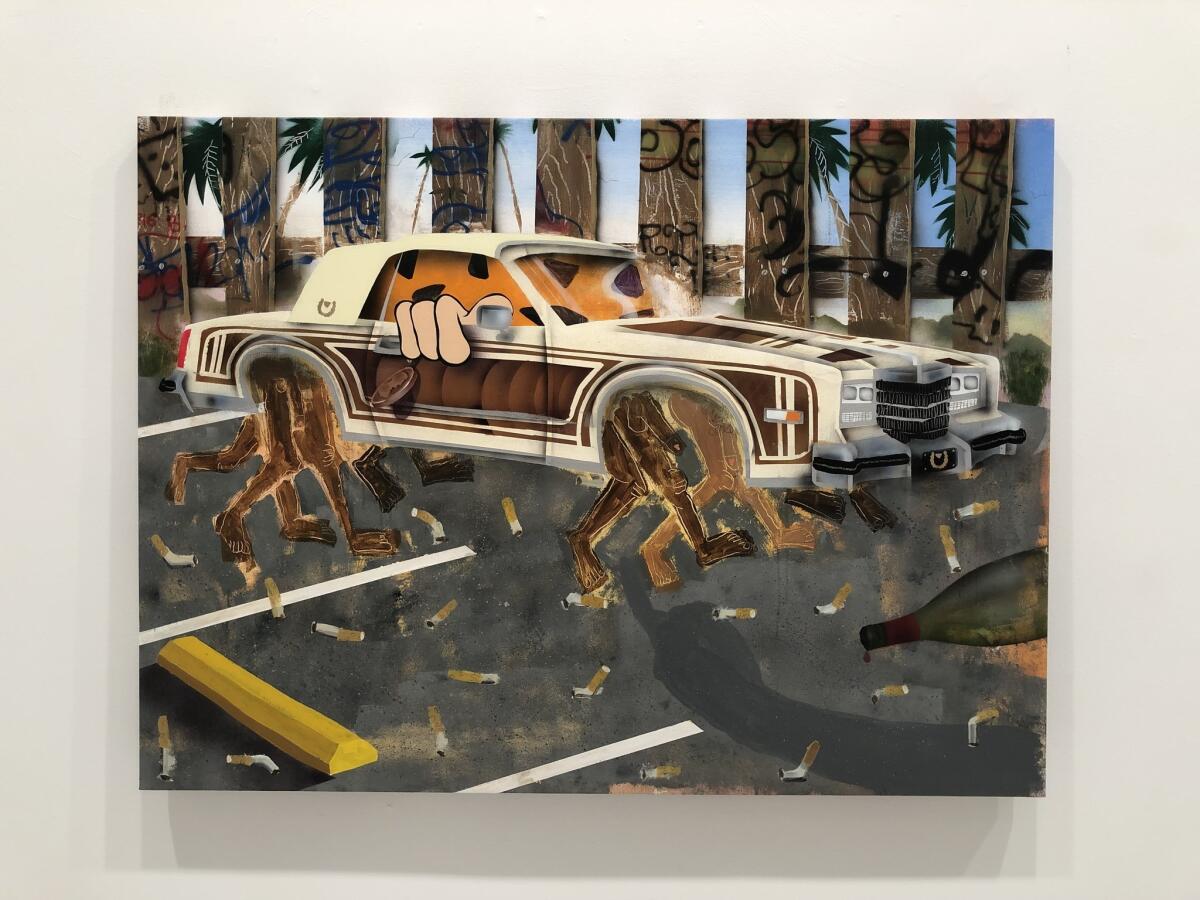
“Blind Courier,” at the Brand Library Art Center. Nine Los Angeles artists explore the nature of the city and these artists’ relationship to the urban environment. This will include works by Sharon Levy, Minoru Ohira and Osceola Refetoff. Opens Saturday at 6 p.m. and runs through Aug. 23. 1601 W. Mountain St., Glendale, brandlibrary.org.
“Arcadia: Visions and Prophecies,” at Durden and Ray. Eleven artists from Los Angeles and beyond — including Roni Feldman, Ricardo Harris Fuentes and Shanna Wadell — examine concepts of utopia (and its opposites) in their work. Opens Saturday and runs through July 29. Bendix Building, 1206 Maple Ave., #832, downtown Los Angeles, durdenandray.com.
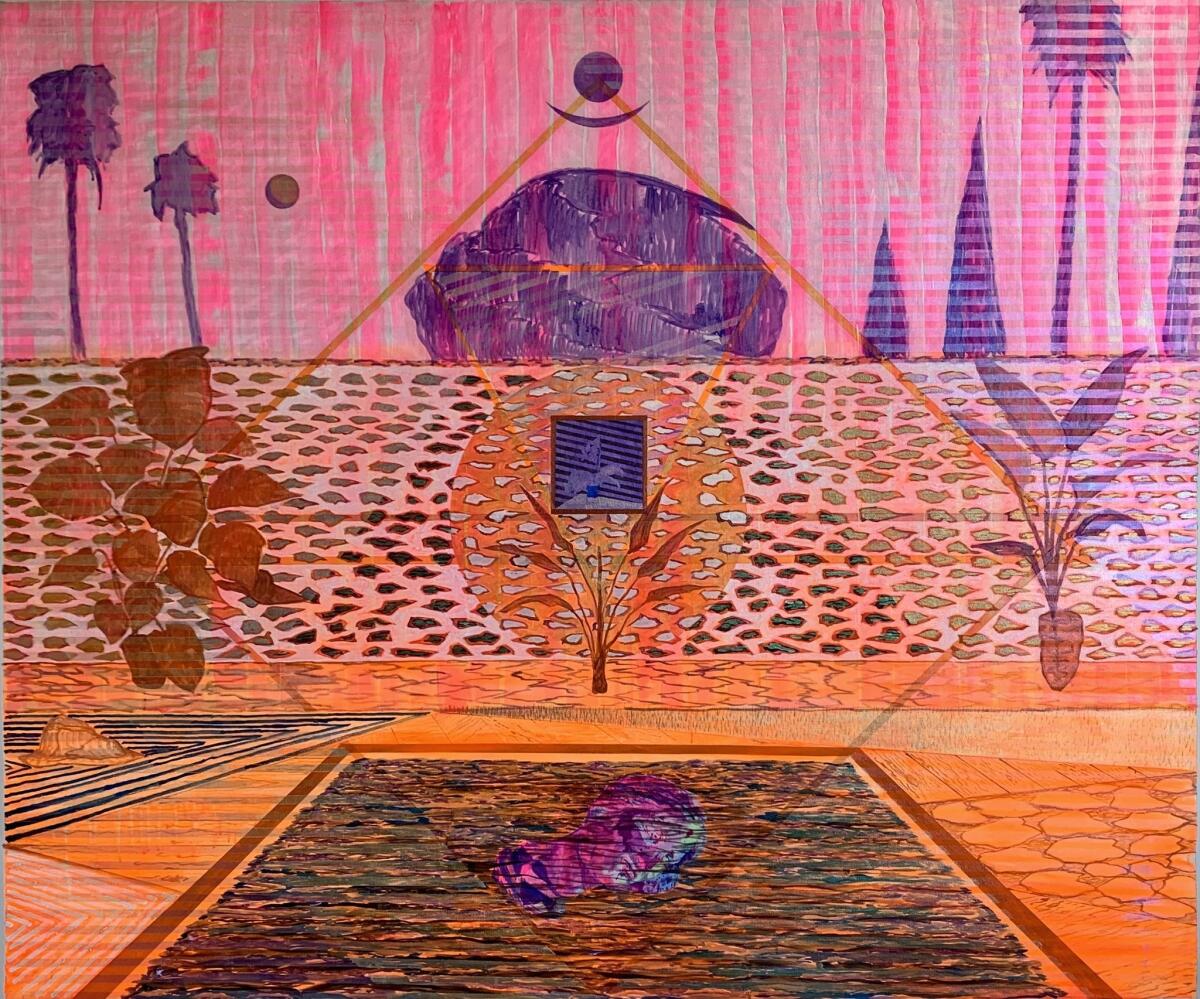
LAST CHANCE
“Auto-Didact: The Juxtapoz School,” at the Petersen Automotive Museum. Custom car culture has had a far-reaching influence on American culture in general, including art, where representation, design and finishes have all had an influence. The show features works by Gary Panter, Sandow Birk, Mister Cartoon, Robert Williams, Suzanne Williams and many others. Through Sunday. 6060 Wilshire Blvd., Mid-Wilshire, Los Angeles, petersen.org.
Roy DeCarava, “The Work of Art,” at the Underground Museum. The Harlem photographer known for his artful chronicles of black life is the subject of a solo exhibition that pairs well with the Broad’s “Soul of a Nation,” which features a number of his works. Through Sunday. 3508 W. Washington Blvd., Arlington Heights, TheUnderground-Museum.org.
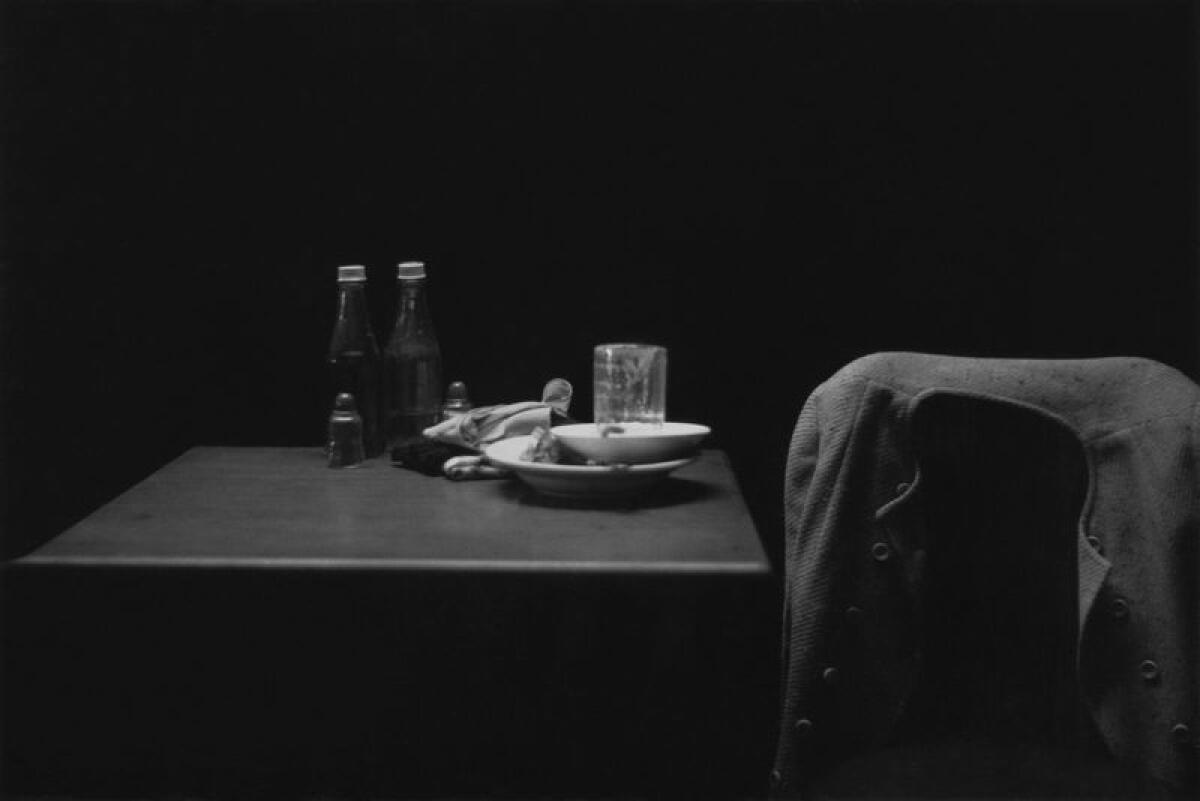
ONGOING
Alexandra Grant, “Born to Love,” at Lowell Ryan Projects. The title of the show is inspired by a well-known line in Sophocles’ “Antigone,” in which King Creon brings Antigone before him and orders her not to mourn the death of her brother. She responds: “I was born to love, not to hate.” In works on paper that fuse different types of abstraction, the L.A.-based artist explores ideas of love by creating text rubbings of Antigone’s defiant expression all over the variegated surfaces of her works. Through July 6. 4851 W. Adams Blvd., West Adams, Los Angeles, lowellryanprojects.com.
“Sculpture,” at Susanne Vielmetter Los Angeles. A group show in Vielmetter’s downtown location features a range of sculptural works by the gallery’s stable of artists, including Edgar Arceneaux, Ruben Ochoa, Mary Kelly and Liz Glynn. The show is centered around a piece by Nicole Eisenman that consists of a 28-foot fiberglass flagpole that is shattered into pieces; a helpless baby eagle in a box lies next to it. Through July 6. 1700 S. Santa Fe Ave., #101, Los Angeles, vielmetter.com.
Jordan Nassar, Faith Ringgold, Salman Toor and Cosmo Whyte, “Home Is Not a Place,” at Anat Ebgi. A group show is inspired by James Baldwin’s 1953 novel “Giovanni’s Room,” exploring the placelessness experienced by a young gay man living abroad. These ideas about the shifting nature of “home” inform works that also examine histories of colonialism, queerness and slavery. Through July 13. 2680 S. La Cienega Blvd., Culver City, anatebgi.com.
“COLA 2019,” at the Los Angeles Municipal Art Gallery. Every year, the city of Los Angeles awards Individual Artist Fellowship grants — known as COLA grants — to midcareer artists working in Los Angeles. This year’s recipients include Enrique Castrejon, Juan Capistrán, Kim Fisher, Sabrina Gschwandtner, Katie Grinnan, Alice Könitz, Olga Koumoundouros, Sandy Rodriguez, Stephanie Taylor, Peter Wu and Jenny Yurshansky. This show features installations by each of the winners — a good survey of what’s happening right now in L.A. Through July 14. 4800 Hollywood Blvd., Hollywood, lamag.org.
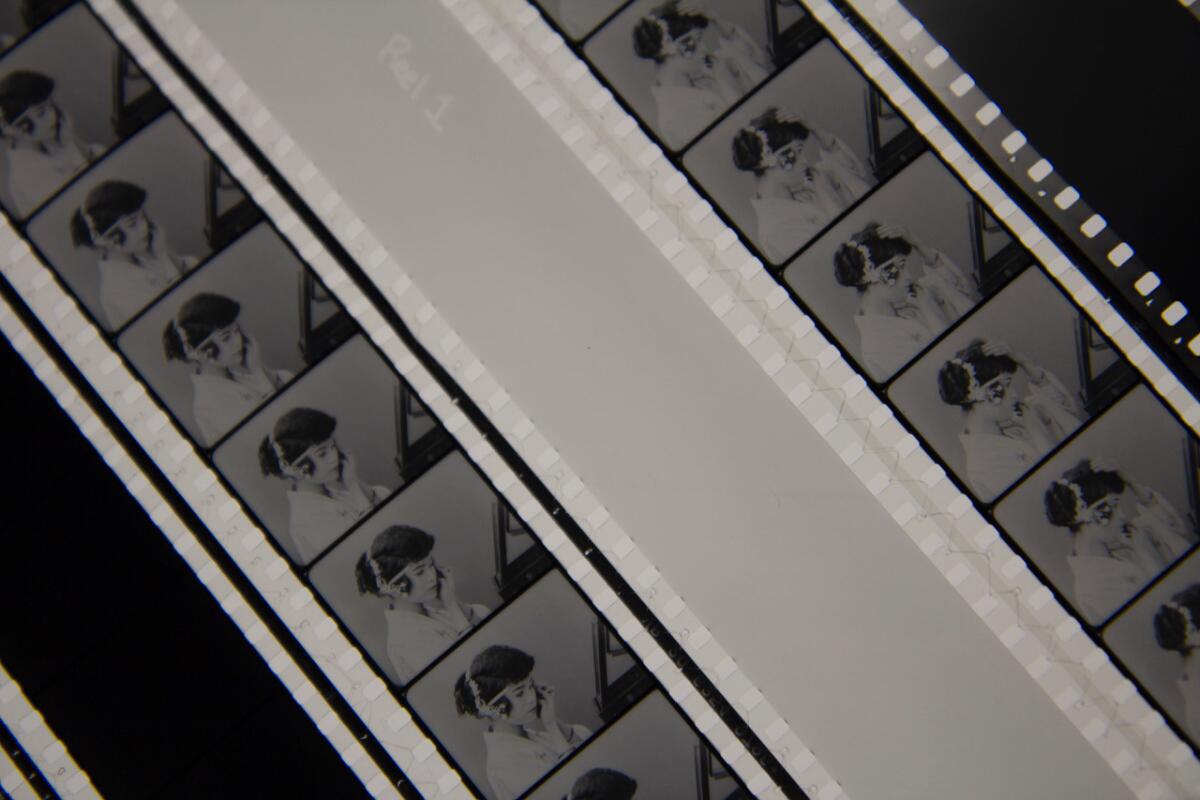
“Tsuruya Kōkei: Modern Kabuki Prints Revised & Revisited,” at the USC Pacific Asia Museum. Kōkei, a key postwar artist, is known for his 20th century take on the Kabuki print, rendering historic leading actors and important stage works in ways that employ intense color and motion. This exhibition gathers 77 prints from the ’80s and ’90s and also explores how Kabuki imagery has inspired Pop and other forms of contemporary art. Through July 14. 46 N. Los Robles Ave., Pasadena, pacificasiamuseum.usc.edu.
James Benning, “Quilts, Cigarettes & Dirt (Portraits of America),” at the Museum of Contemporary Art Santa Barbara. The Milwaukee-born independent filmmaker, now a professor at CalArts, became known for his ruminative films about Midwest landscapes in the 1970s, and since then has produced work that engages the cultural, political and historical implications of what certain landscapes represent. Part of the “Made in L.A.” biennial at the Hammer Museum in 2018, “Quilts, Cigarettes & Dirt” represents his first solo museum show on the West Coast. Through July 14. 653 Paseo Nuevo, Santa Barbara, mcasantabarbara.org.
“Beyond Line: Art of Korean Writing,” at the Los Angeles County Museum of Art. In Korea, calligraphy is considered one of the highest forms of art — and this show gathers some of the highest examples of written pieces produced on the peninsula over two millennia, including works written in Chinese ideographic characters (hanja), as well as the phonetic Korean script (hangeul). This is the first exhibition outside Asia to focus on the history of writing and calligraphy in that country. Through Sept. 29. 5905 Wilshire Blvd., Mid-Wilshire, Los Angeles, lacma.org.
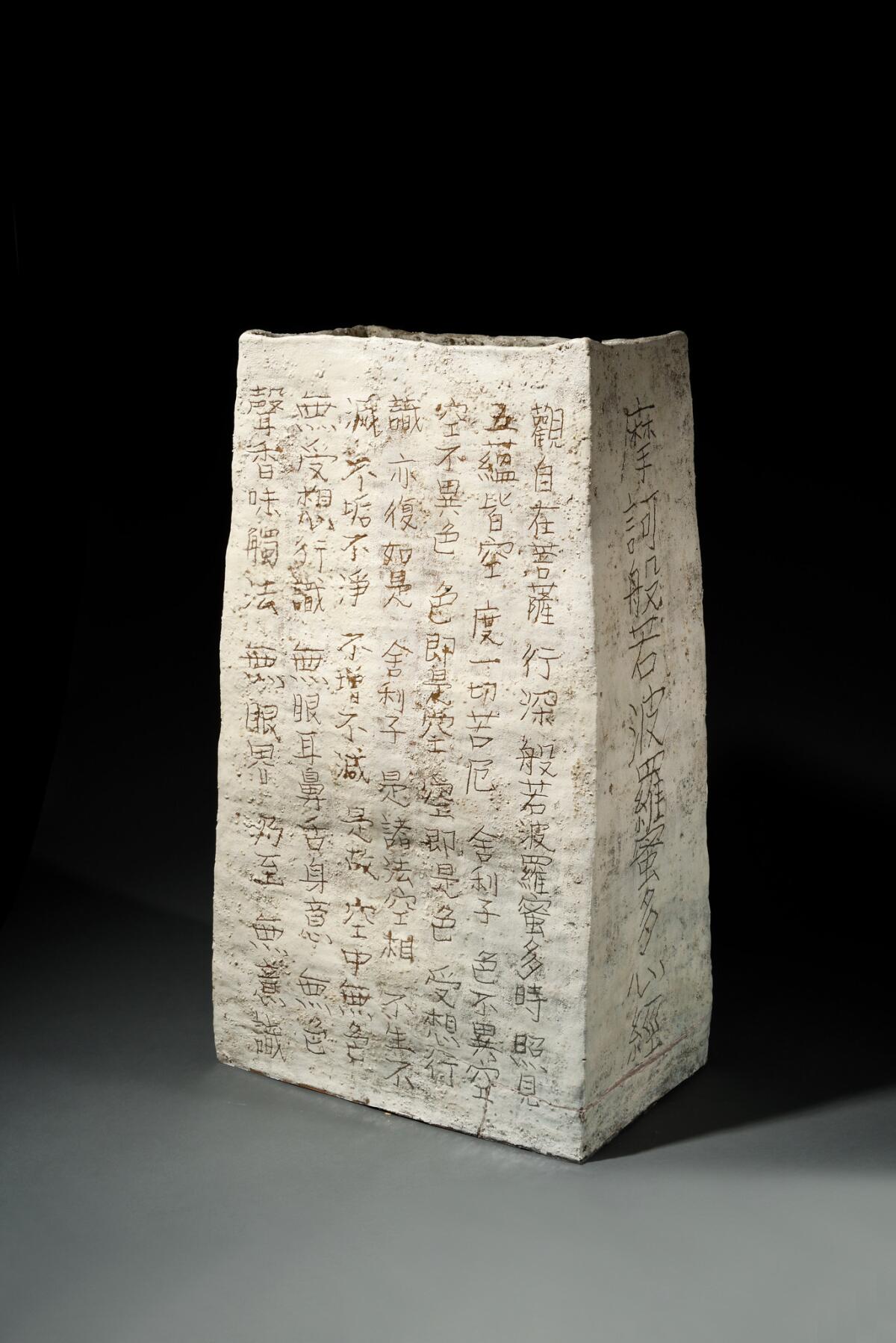
The Harrisons, “Extinction,” at Various Small Fires. Inspired by the publication of Rachel Carson’s “Silent Spring” in 1962, Newton Harrison and his wife, Helen Mayer Harrison, committed to creating only artwork that would benefit “the great web of life.” This included simple acts — such as making topsoil — and more complicated works, including mapping out nature corridors. Their work served as an early foundation for the ecological art movement. Newton, now 86, continues his practice, though his partner died last year. This exhibition brings together works produced from 1970 to the present, works that dwell on extinction — and ways of countering it. Through July 18. 812 Highland Ave., Hollywood, vsf.la.
York Chang, “The Signal and the Noise,” and Edgar Fabián Frías, “Perpetual Flowering,” at the Vincent Price Art Museum. The museum has two solo shows on view. The first features mixed-media works by Chang that combine text and image to explore the ways in which individuals navigate mass media, public spectacle and the nature of propaganda. A second installation, by Frías, transforms the gallery into a mystical sanctuary/portal. Through July 20. East Los Angeles College, 1301 Cesar Chavez Ave., Monterey Park, vincentpriceartmuseum.org.
Emily Hoerdemann, “One Word Poems & Other Interesting Colors,” at Garis & Hahn. In her debut solo show with the gallery, Hoerdemann is presenting a series of works that employ language and pattern in ways that reflect on what it means to be a woman at this moment in time. Through July 20. 1820 Industrial St., downtown Los Angeles, garisandhahn.com.
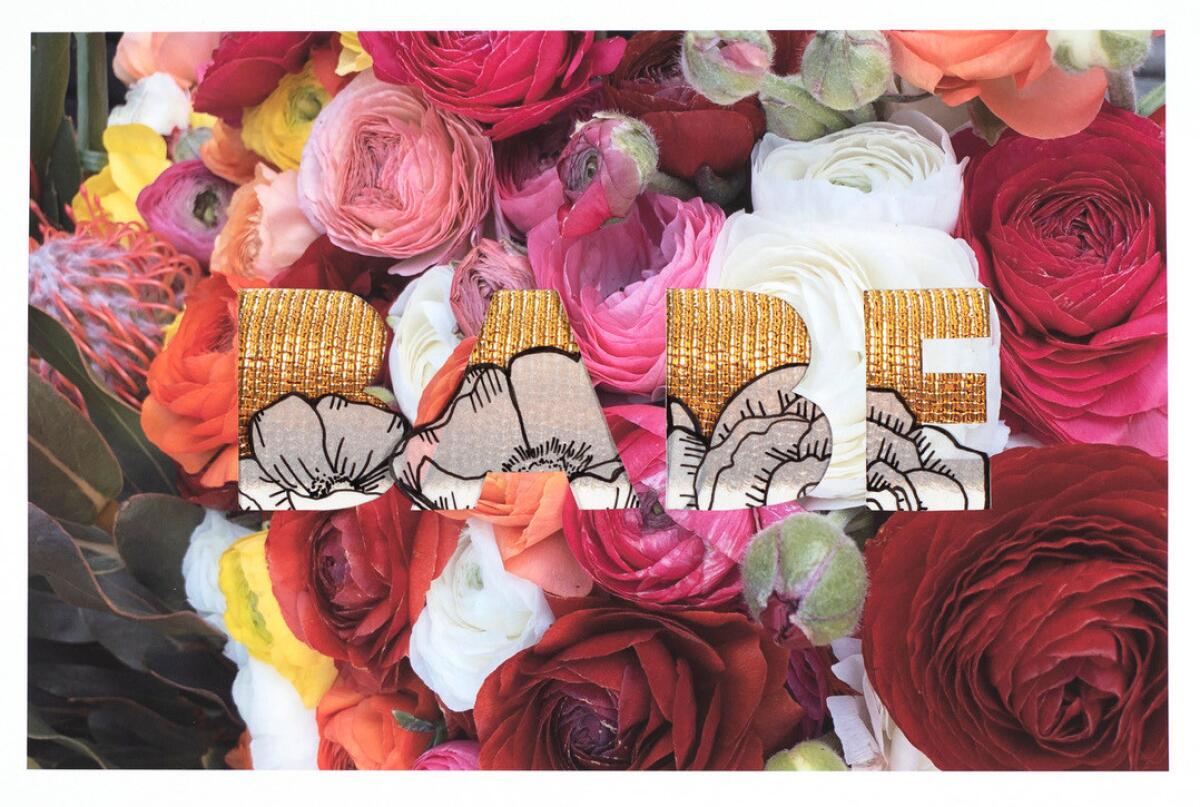
“You don’t control the witness,” at ltd los angeles. A group show featuring work by Nora Aslan, Ana Benaroya, Pilar Gallego, Gabriela Ruiza, Zoe Walsh and Laura Aguilar explores ideas of maximalism — artists who willfully refuse to tone things down even in the face of systems that demand that they do so. Through July 27. 119 S. La Brea Ave., Mid-Wilshire, Los Angeles, ltdlosangeles.com.
Kudzanai Chiurai, Zina Saro-Wiwa and Mikhael Subotzky, “Inheritance: Recent Video From Africa,” at the Fowler Museum. A group show features recent video work by three contemporary African artists who address issues of environment, social issues and historical realities in their work. Through July 28. UCLA, 308 Charles E. Young Drive, Westwood, fowler.ucla.edu.
Eleanor Antin, “Time’s Arrow,” at the Los Angeles County Museum of Art. In 1972, Antin took on ideas about sculpture, performance and self-portraiture in a work titled “Carving,” in which she photographed her nude body over 37 days in an effort to chronicle the loss of 10 pounds. In 2017, she restaged the work with “Carving: 45 Years Later,” but the loss of 10 pounds took 100 days. The new piece updates the old — and adds to it themes related to vulnerability and aging. Through July 28. 5905 Wilshire Blvd., Mid-Wilshire, Los Angeles, lacma.org.
“Manga Hokusai Manga,” at the Japan Foundation. He is best known for his woodblock print of a single wave whose arc reveals Mount Fuji in the distance. But before creating his seminal series of block prints, the 19th century Japanese artist Katsushika Hokusai was best known for his manga — illustrated guides to drawing that depicted a range of everyday figures, animals and objects, often with great humor, which ultimately served as important forebears to today’s comic book designs. This exhibition considers his influences on comic book artists throughout the ages. Through Aug. 3. 5700 Wilshire Blvd., Ste. 100, Mid-Wilshire, Los Angeles, jflalc.org.
Patty Chang, “The Wandering Lake, 2009-2017,” at the Institute of Contemporary Art Los Angeles. Inspired by a turn-of-the-20th-century travelogue about a migrating body of water in the Chinese desert, this installation, produced over several years, explores stories of landscape, politics, family and mourning. Through Aug. 3. 1717 E. 7th St., downtown Los Angeles, theicala.org.
“Dilexi: Totems and Phenomenology,” at Parrasch Heijnen. Early in June, Parker Gallery kicked off a series of exhibitions in locations around California devoted to the artists of San Francisco’s Dilexi Gallery. Dilexi focused on counterculture artists whose work channeled an uncommon spirituality and who often employed ethereal or nontraditional materials. As part of this, Parrasch Heijnen is showing pieces by Arlo Acton, Deborah Remington, Charles Ross, Richard Van Buren and Tony DeLap (who died this month), artists whose work touched on environmental qualities and the nature of perception. Through Aug. 10. 1326 S. Boyle Ave., Boyle Heights, Los Angeles, parraschheijnen.com.
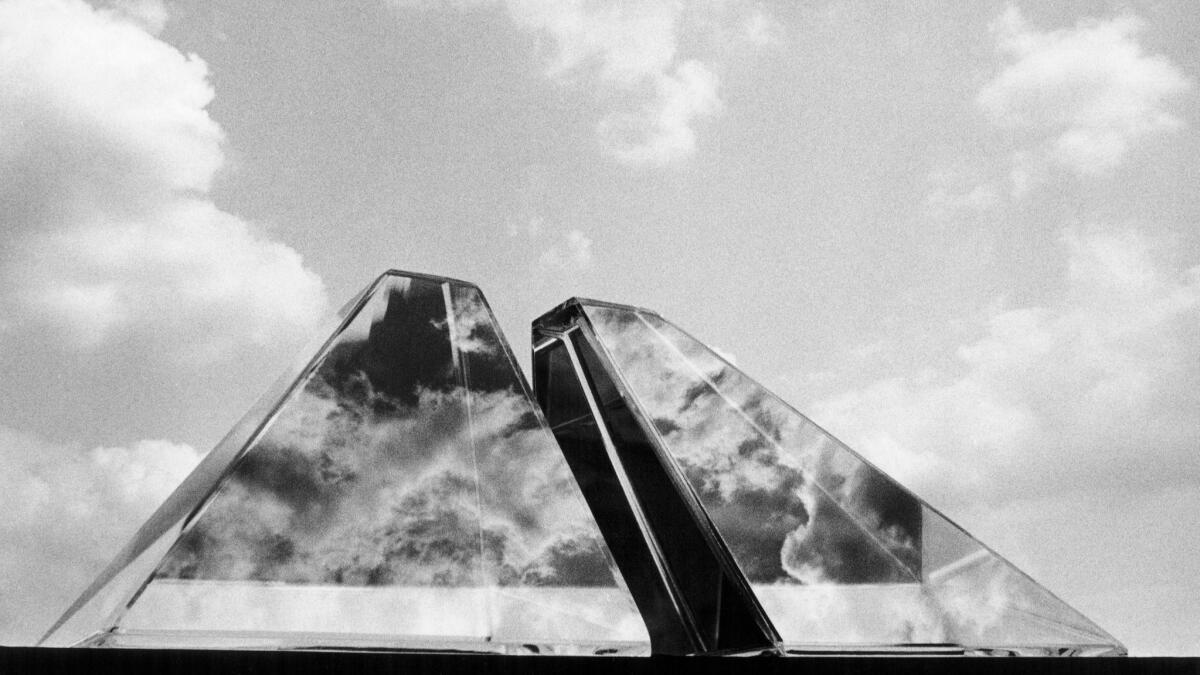
“Dilexi Gallery: Disparate Ontologies,” at the Landing. Also part of the Dilexi series is this exhibition at the Landing, which features an array of artists who exhibited at the gallery, including John Altoon, Joe Goode, Leslie Kerr and H.C. Westermann. Though the artists who exhibited at Dilexi occupied the avant-garde, their styles were wildly different — working in sculpture, painting, installation and happenings. Through Aug. 10. 5118 W. Jefferson Blvd., West Adams, Los Angeles, thelandinggallery.com.
“Dilexi Gallery: Seeking the Unknown,” at Parker Gallery. This exhibition is one of a six-part retrospective — staged at galleries around L.A. and San Francisco — that will examine the legacy of San Francisco’s Dilexi Gallery, a space where art intersected with the magical. Artists in this show at the Parker include Wallace Berman, Kurt Schwitters, Roy De Forest and Franklin Williams. Other participating galleries include Parrasch Heijnen, the Landing and Marc Selwyn Fine Arts, whose shows are opening at separate dates. Through Aug. 10. 2441 Glendower Ave., Los Feliz, Los Angeles, parkergallery.com.
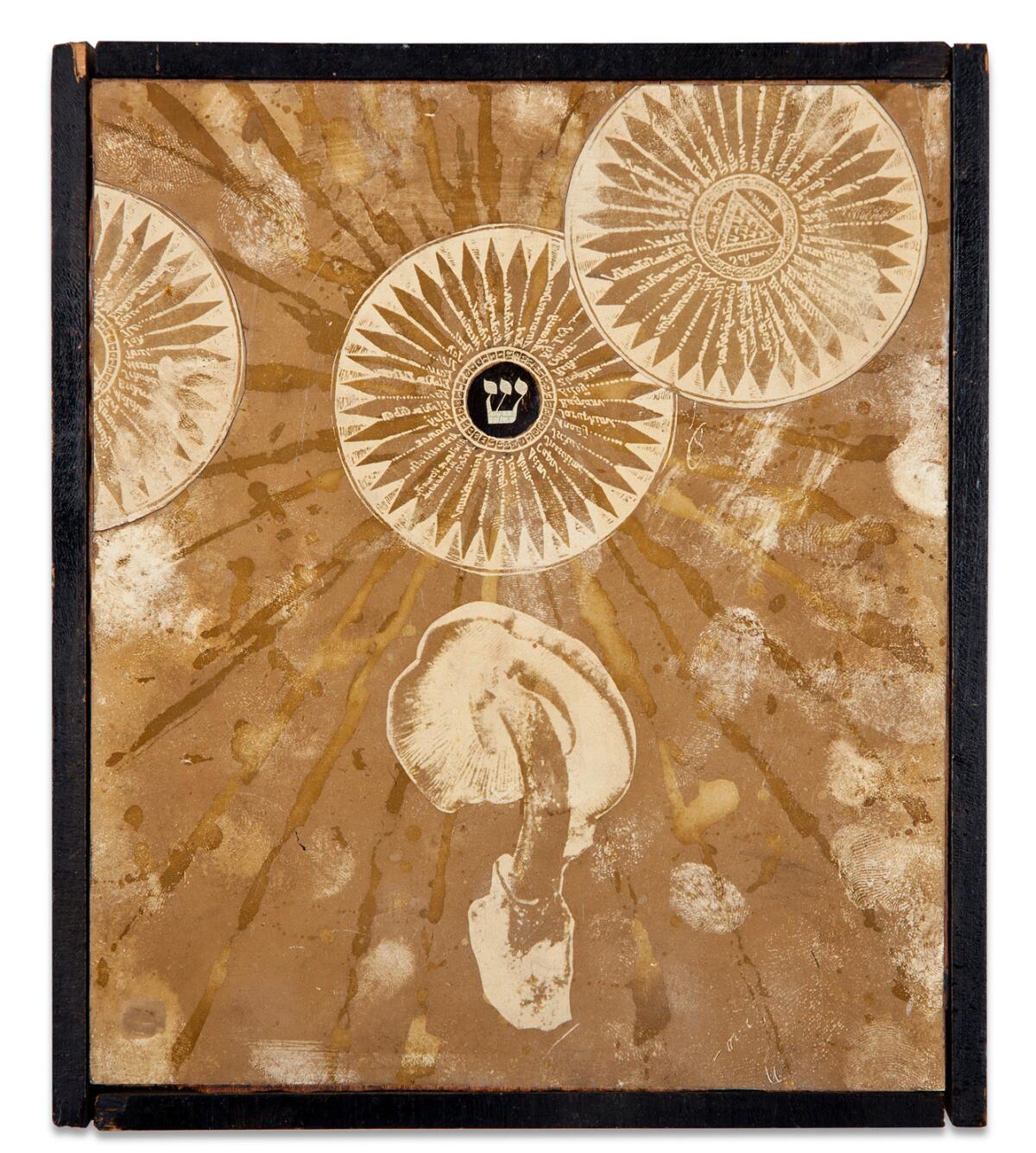
David Hammons, at Hauser & Wirth. In lieu of a news release, Hammons had the gallery send out a scribbled line drawing that bore the dedication, “This exhibition is dedicated to Ornette Colman, Hemolodic Thinker” — the latter a reference to the late saxophonist’s theories of jazz. The basic concept: “Follow the idea, not the sound.” That is something that has resonated deeply with Hammons, who, over the course of a career that has spanned more than half a century, has taken on the emblems of want and privilege in the arenas of race, class and economics and forced us to stare our hypocrisies in the face. Through Aug. 11. 901 E. Third St., downtown Los Angeles, hauserwirth.com.
“Women at the Frontline of Mass Violence Worldwide,” at the Los Angeles Museum of the Holocaust. A photographic exhibition is inspired by the female survivors of mass violence from countries around the world, including indigenous women from Guatemala, Yazidi women in Iraq and survivors of the Holocaust. Through Aug. 11. 100 S. The Grove Dr., Fairfax, Los Angeles, lamoth.org.
“Contact High: A Visual History of Hip-Hop,” at the Annenberg Space for Photography. A group show organized by author Vikki Tobak looks at the work of photographers who chronicled the rise of hip-hop, with famous prints (such as the iconic portrait of Biggie Smalls in a crown by Barron Claiborne) as well as unedited contact sheets and other images of key musical figures from the genre, including Eazy-E, Jay-Z and Salt-N-Pepa. Tobak is the author of the bestselling book on which the exhibit is based. Through Aug. 18. 2000 Avenue of the Stars, Century City, AnnenbergPhotoSpace.org.
“Book of Beasts: The Bestiary in the Medieval World,” at the Getty Museum. Medieval bestiaries were books that served as compendiums of creatures both fantastic and real. This show at the Getty gathers some very dynamic examples from the museum’s collection of objects and illuminations — such as an unusual unicorn water vessel from 15th century Germany. Through Aug. 18. 1200 Getty Center Dr., Brentwood, Los Angeles, getty.edu.
Adia Millett, “Breaking Patterns,” at the California African American Museum. Millett creates work inspired by the nature of quilts — pieces in which disparate pieces come together to form a cohesive, sheltering whole. Through Aug. 25. 600 State Drive, Exposition Park, caamuseum.org.
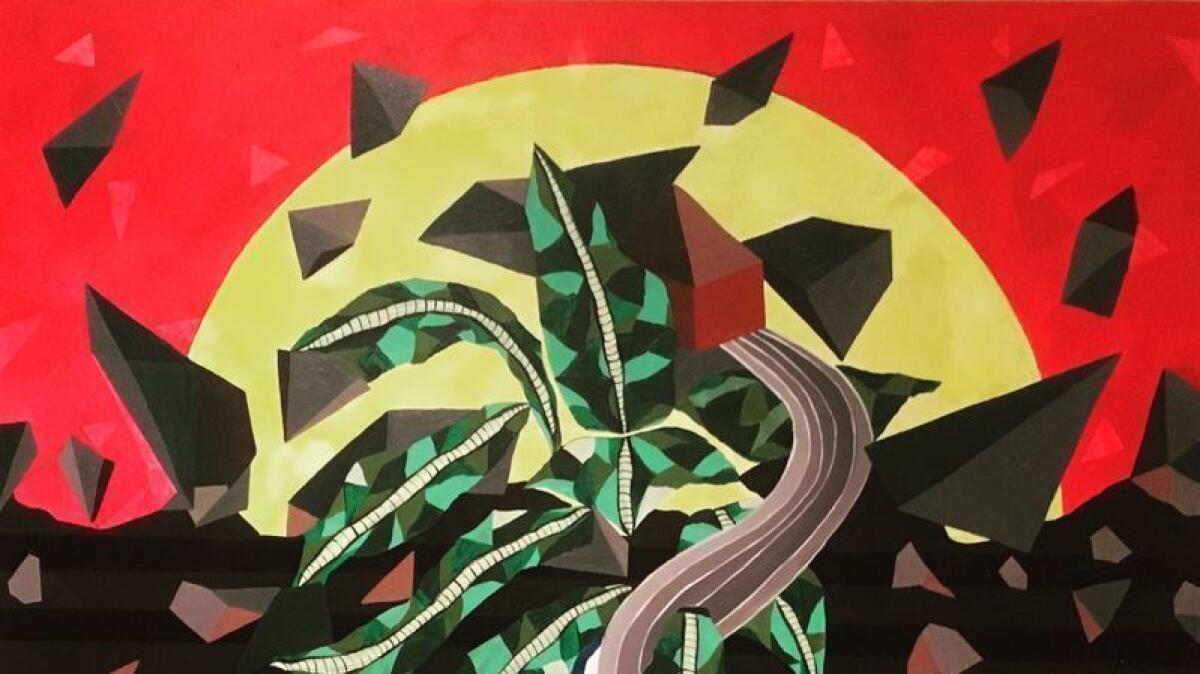
“Plumb Line: Charles White and the Contemporary,” at the California African American Museum. A show of work by contemporary artists reflects on the ongoing influence of painter and teacher Charles White, known for his depiction of the black figure, frequently rendered in mystical ways. The show includes works by Sadie Barnette, Diedrick Brackens, Kenturah Davis and Toyin Ojih Odutula, among many others. Through Aug. 26. 600 State Drive, Exposition Park, Los Angeles, caamuseum.org.
“Black is Beautiful: The Photography of Kwame Brathwaite,” at the Skirball Cultural Center. In the ’60s, in an era in which segregation still prevailed, Brathwaite made images that reveled in blackness. He teamed up with his brother for the establishment of the artistic collective known as the African Jazz-Art Society and Studios, as well as the Grandassa Models, a modeling group for black women. Both groups fed and inspired Brathwaite’s imagery, which consisted of elegant fashion shots and portraiture that celebrated the best of black beauty. Through Sept. 1. 2701 N. Sepulveda Blvd., Brentwood, skirball.org.
“Gráfica América,” at the Museum of Latin American Art. An exhibition looks at printmaking in its various manifestations, featuring work by more than 100 artists and master printers, including Mexico’s Taller de Gráfica Popular and L.A.’s own Mixografía, known for the prints that extend into three dimensions. Participating artists include Pepe Coronado, Sandra C. Fernández and Fernando De León. Through Sept. 1. 628 Alamitos Ave., Long Beach, molaa.or.
Sarah Lucas, “Au Naturel,” at the Hammer Museum. In ways that are visceral, pointed and absurd, British artist Sarah Lucas has long tackled issues of gender, sexuality and identity in ways that are both confrontational and humorous. (Imagine a sculpture of a phallus made out of wire and matchsticks.) This survey features 130 objects the artist has produced throughout her career, including works of photography, collage, installation and sculpture. Through Sept. 1. 10899 Wilshire Blvd., Westwood, Los Angeles, hammer.ucla.edu.
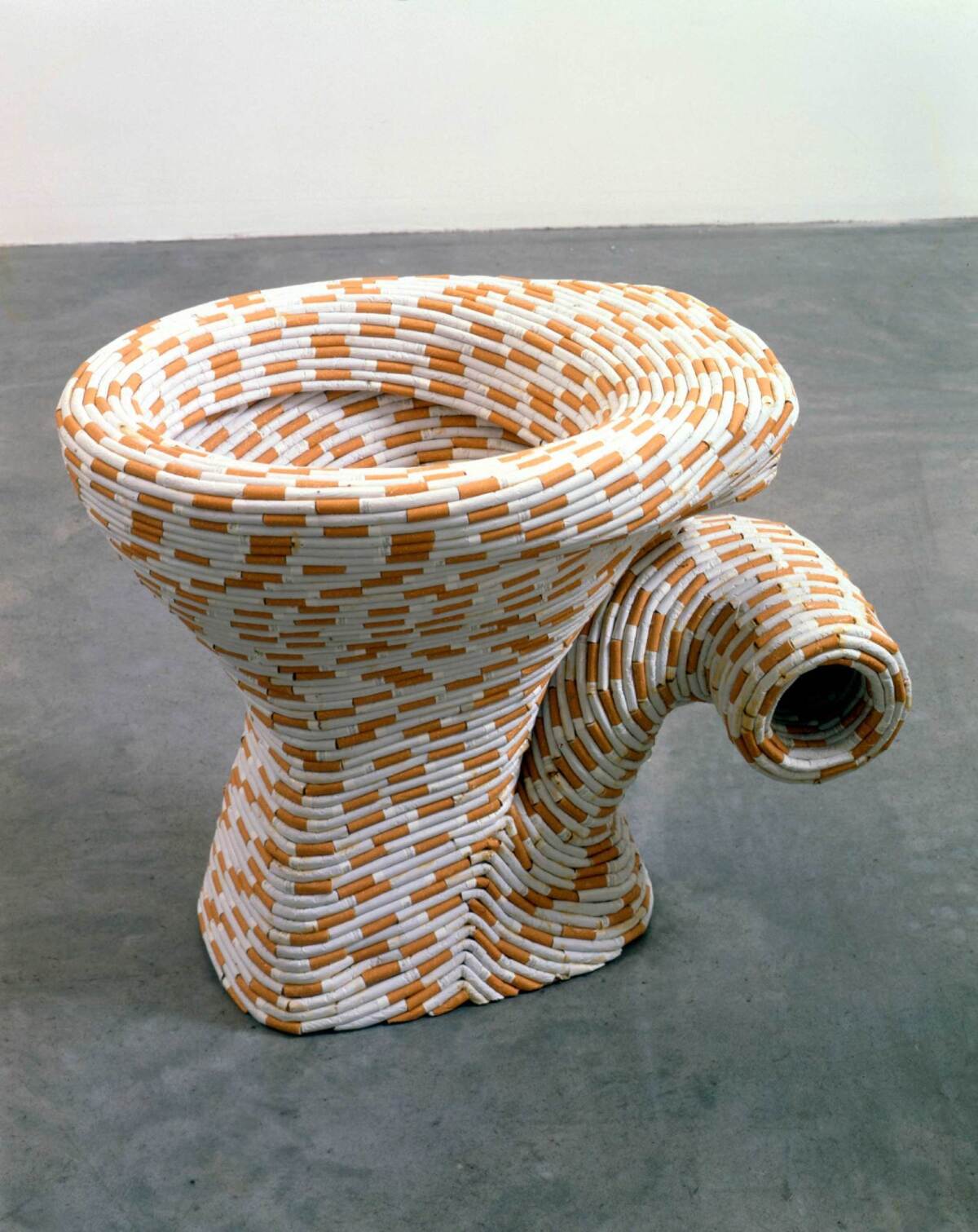
“Soul of a Nation: Art in the Age of Black Power 1963-83,” at the Broad museum. Originally organized by the Tate Modern in London, this group exhibition focusing on art by African Americans features pieces by more than 60 influential artists who worked during a period of civil rights tumult and moments in which questions of identity were thrown into stark relief in the United States. The show includes a wide range of artistic categories — art photography, abstract expressionist painting, political posters — that explore facets of black history and black identity at a formative time. It contains work by key L.A. artists or influential figures who spent formative years in Los Angeles, including Betye Saar, Senga Nengudi, David Hammons, Noah Purifoy and Daniel LaRue Johnson. Not to be missed. Through Sept. 1. 221 S. Grand Ave., downtown Los Angeles, TheBroad.org.
New exhibitions at OCMA Expand. While its new Thom Mayne-designed building is under construction in Costa Mesa, the Orange County Museum of Art has been occupying a temporary site inside an old furniture showroom near South Coast Plaza, and I seriously dig. (More museums in easy-to-access strip malls, please.) For their round of exhibitions they are putting on a series of installations by Diego Berruecos, York Chang, Victoria Fu, Matt Rich, Fritzia Irizar, UuDam Tran Nguyen and Hiromi Takizawa that touch on issues of control, power, truth and reality. Through Sept. 1. South Coast Plaza Village, 1661 W. Sunflower Ave., Costa Mesa, ocma.net.
“On the Inside,” at Craft Contemporary. This group exhibition features portrait drawings by LGBTQ artists who are currently incarcerated (a prison population that often faces greater risks of physical and sexual victimization). The show features 110 works made with simple materials such as paper, pencil and ballpoint tubes. (The shell of the pen isn’t allowed in prison, where it is frequently considered dangerous.) Others employ materials devised in the harsh conditions of prison. Through Sept. 8. 5814 Wilshire Blvd., Mid-Wilshire, Los Angeles, cafam.org.
John T. Riddle Jr., “The RIDDLE Effect,” at Craft Contemporary. This the first major exhibition of Riddle’s work in Los Angeles in more than two decades and gathers some of his most significant works — some of which are going on view for the first time. The late L.A. artist was a master of assemblage, known for sculptures that put together found metal in visceral ways — including pieces that employed objects scavenged in the wake of the Watts riots in 1965. Riddle also produced figurative paintings and large-scale ceramic sculptures. Through Sept. 8. 5814 Wilshire Blvd., Mid-Wilshire, Los Angeles, cafam.org.
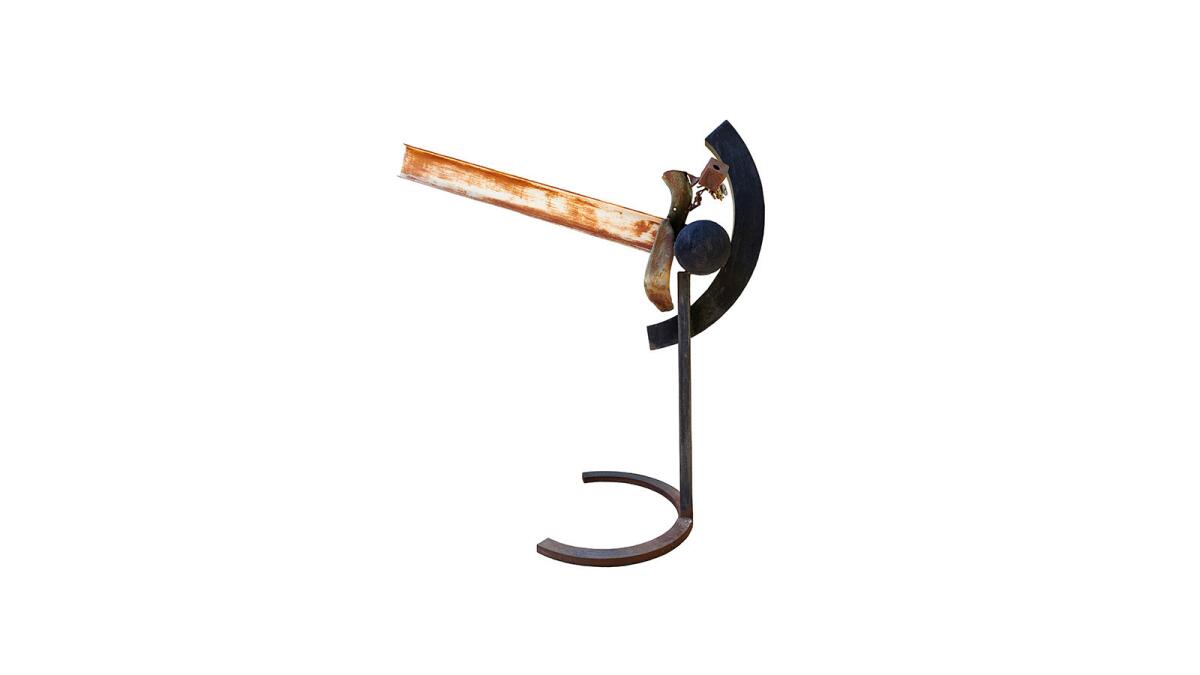
“Aspects of Nude: Selections From the Permanent Collection,” at the California African American Museum. This exhibition, drawn from the museum’s permanent collection, explores how the nude has been employed in ways both sensual and political by a range of artists, including Romare Bearden, Charles Dickson, Alison Saar, John Outterbridge and many others. Through Sept. 8. 600 State Drive, Exposition Park, Los Angeles, CAAmuseum.org.
John Divola, “STRATUM / Clive’s Wearing Dilemma,” at the California Museum of Photography. For “Stratum,” the conceptual photographer presents a selection of historical photos from his personal collection — namely, “banquet” photos, snapped between 1920 and 1950, that show gatherings of businessmen and the sundry members of civic groups in the midst of banquet events. In a related show, Divola is showing 12 large black-and-white prints from his series “Clive’s Wearing Dilemma,” works that play on the cosmic in both physical and psychological ways. Through Sept. 8. 3824 + 3834 Main St., Riverside, artsblock.ucr.edu.
“Ernie Barnes: A Retrospective,” at the California African American Museum. It is, by now, an established symbol of American culture: Barnes’ 1976 canvas “Sugar Shack,” which captured a black dance hall in mid-groove. It served as the cover of Marvin Gaye’s album “I Want You” (also released in ’76), and was a visual staple on the 1970s sitcom “Good Times.” This retrospective captures the full scope of Barnes’ life and work — which included serving as the official artist of the ’84 Olympics and a stint playing pro football. Through Sept. 8. 600 State Drive, Exposition Park, Los Angeles, caamuseum.org.
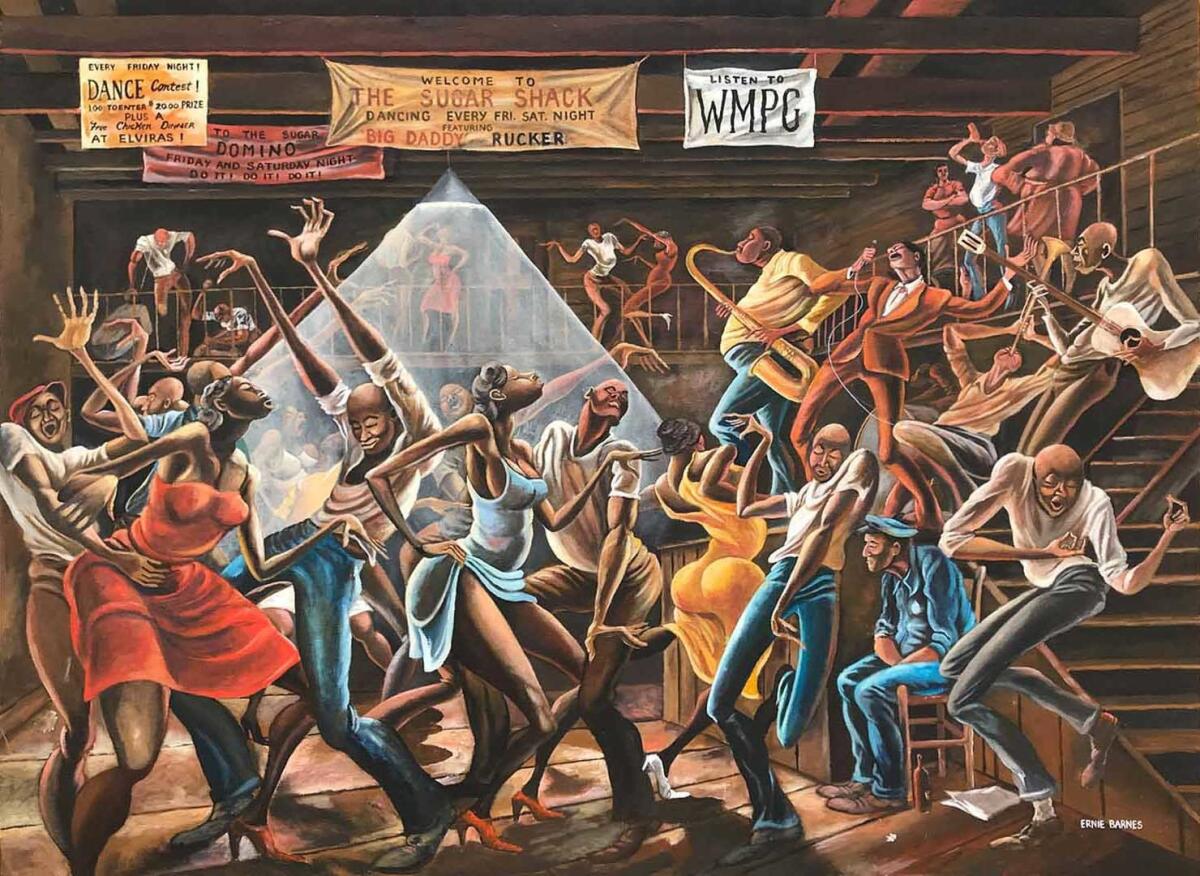
“Life Model: Charles White and his Students,” at Charles White Elementary School. In conjunction with the Charles White retrospective at LACMA, the museum is organizing this exhibition that looks at the late artist’s impact on the art world as a teacher. The exhibition features work by many of his students, including David Hammons, Judithe Hernández, Kerry James Marshall and Kent Twitchell. Through Sept. 15. 2401 Wilshire Blvd., Westlake, Los Angeles, lacma.org
Jennifer Levonian, “Lost Islands of Philadelphia,” and Jon Haddock, “The Things (that do not spark joy),” at Grand Central Art Center. Grand Central Art Center is marking two decades with several shows, including paintings by Levonian (inspired by some long-gone riverine islands in Philadelphia) and a wall mural by Haddock. Other works — including paintings by Yevgeniya Mikhailik and an installation by Angel Nevarez and Valerie Tevere exploring development and gentrification — are also on view. Through Sept. 15. 125 N. Broadway, Santa Ana, grandcentralartcenter.com.
Chris Kallmyer, “Ensemble,” at the Santa Barbara Museum of Art. The Los Angeles-based artist has created an installation that also functions as a collective musical instrument — a carillon (bell-ringing apparatus) that requires the hands of several participants in order to be fully played. Through Sept. 15. 1130 State St., Santa Barbara, sbma.net.
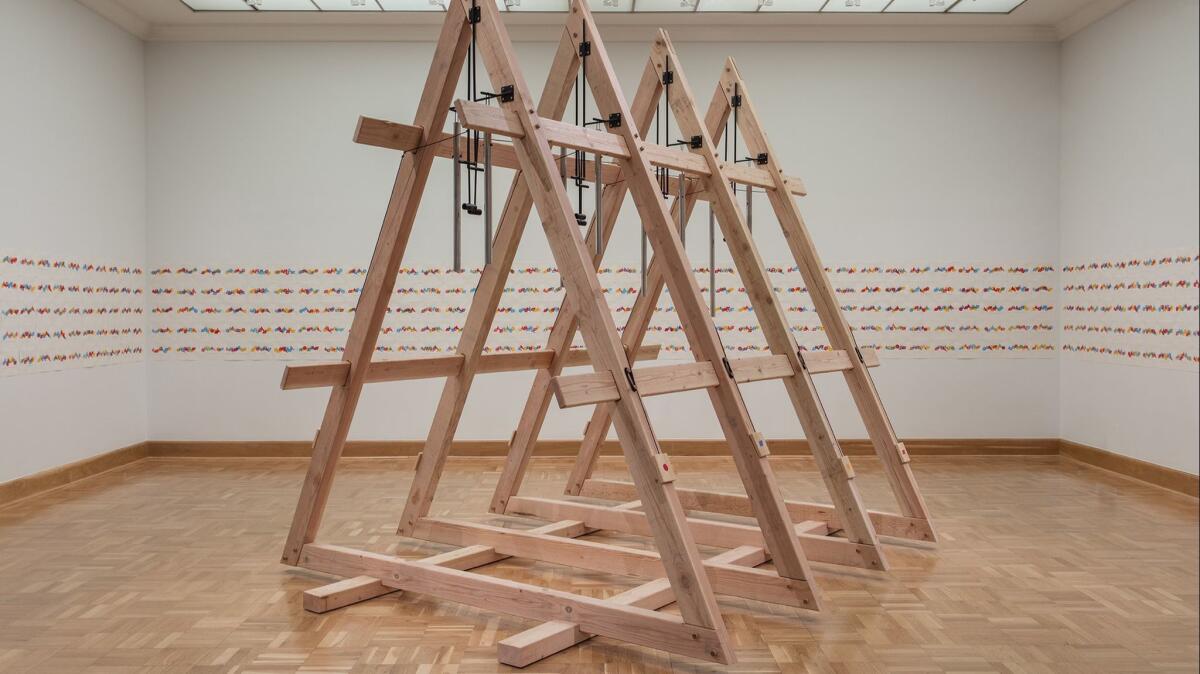
“Guatemalan Masks: Selections from the Jim and Jeanne Pieper Collection,” at the Fowler Museum. This collection of 80 masks depicts Guatemalan historical and cultural figures, as well as sprightly animals and popular deities — all connected with a range of folkloric festivals and events that are also chronicled in the show. This includes masks employed in dances that illustrate the conquest and the story of San Simón, or Maximón, a popular folk saint inspired by a blend of Spanish and Maya lore. Through Oct. 6. 308 Charles E. Young Drive N., Westwood, Los Angeles, fowler.ucla.edu.
“Bauhaus Beginnings,” at the Getty Research Institute. It has been the year of Bauhaus — marking the 100th anniversary of the globally influential art and design school that occupied locations in Berlin, Weimar and Dessau and then famously closed under pressure by the Nazis. This exhibition brings together more than 250 objects, primarily drawn from the Getty’s collections, that look at the school’s founding principles, which are rooted in spiritual expression and the development of a curriculum that touched all forms of artistic practice. Through Oct. 13. 1200 Getty Center Dr., Brentwood, Los Angeles, getty.edu.
“Gifted: Collecting the Art of California at Gardena High School 1919-1956,” at the Hilbert Museum of California Art. For almost four decades, the senior class at Gardena High School would come together to gift a work of art to their school — including pieces by notable California painters such as Edgar Payne and Maynard Dixon. Now that collection, which includes more than 70 paintings and an extensive archive of related material, is going on view at the Hilbert — the most expansive display of the collection since the 1950s. Through Oct. 19. 167 N. Atchison St., Orange, hilbertmuseum.com.
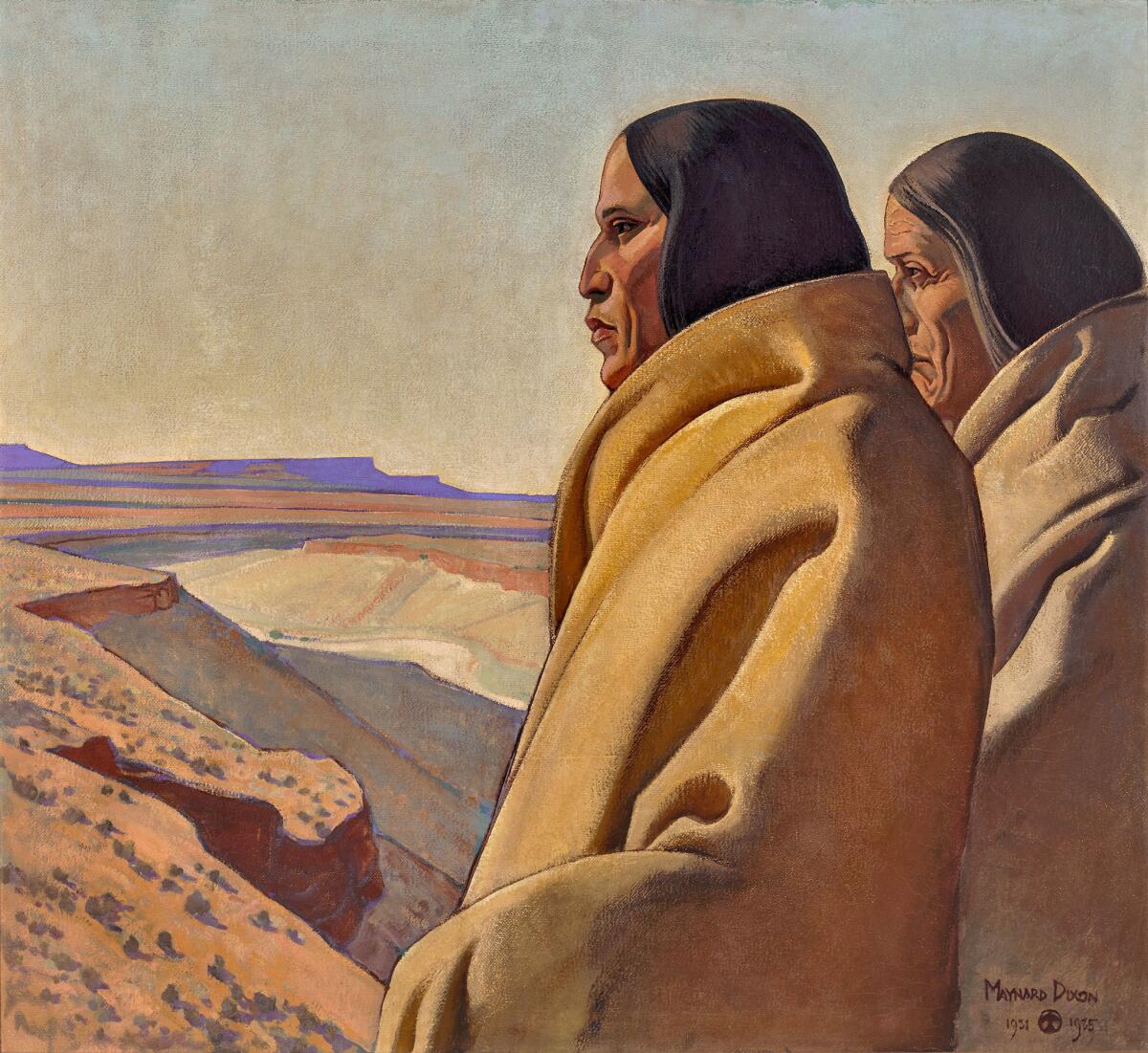
“Watching Socialism: The Television Revolution in Eastern Europe,” at the Wende Museum. It might be easy to think that television programming screened in the former Soviet bloc would have been an endless stream of propaganda. But reality was more complicated. Residents in border areas often received Western TV signals, complicating the picture of Soviet politics. And in the latter years under communist rule, TV networks introduced advertising — a capitalist conceit that was molded to socialist need. This exhibition looks at the television panorama in Eastern Europe during the Cold War. Through Oct. 20. 10808 Culver Blvd., Culver City, wendemuseum.org.
Umar Rashid (Frohawk Two Feathers), “The World You Know is a Fiction…” at the Vincent Price Art Museum. Rashid takes American historical narratives, scrambles them, then reimagines them in paintings that take on issues such as colonization, war and the building of empires. Produced over several years, the work on view at the museum explores the vicissitudes of power and centers on figures that occupy his so-called “Frenglish Empire,” a fusion of the French and British colonial enterprises. Expect to see battalions of militiamen, freed slaves, indigenous nobility, all drawing on the visual and material traditions of colonial art. Through Dec. 21. 1301 Cesar Chavez Ave., Monterey Park, vincentpriceartmuseum.org.
Carolina Caycedo, “Apariciones / Apparitions,” at the Vincent Price Art Museum. As part of a project that was jointly curated by VPAM and the Huntington Library, Art Collections and Botanical Gardens, Caycedo spent time at the Huntington making a work that responded to the museum collection: a collaborative dance piece with choreographer Marina Magalhães that was inspired by indigenous and African dance practices and which, in many ways, responds to the issues of colonization raised by the entire Huntington enterprise. VPAM is now showing the video from that work, which it has acquired as part of its permanent collection. Through Dec. 21. 1301 Cesar Chavez Ave., Monterey Park, vincentpriceartmuseum.org.
“The Archival Impulse: 40 Years at LACE,” at Los Angeles Contemporary Exhibitions. LACE, the historic Los Angeles art spot that gave key shows to Mike Kelley and groups such as Survival Research Laboratories in the ’80s, is turning 40 — and to mark the occasion, the organization has been poking around its metaphorical attic (aka its archive) to see what it might turn up. This show gathers elements from that archive as well as video works by a range of Los Angeles artists, including Jim Shaw, Susan Mogul and Reza Abdoh. Through Dec. 31. 6522 Hollywood Blvd., Hollywood, welcometolace.org.
Harry Fonseca, “Coyote Leaves the Res,” at the Autry Museum. The museum acquired the estate of the Sacramento-born painter and is now presenting works from his archive. Fonseca was known for his depictions of Coyote, a canine trickster who materializes in all manner of very human settings. It’s work that nods at the artist’s indigenous heritage without ever getting caught up in cliches. Through Jan. 5. 4700 Western Heritage Way, Griffith Park, Los Angeles, theautry.org.
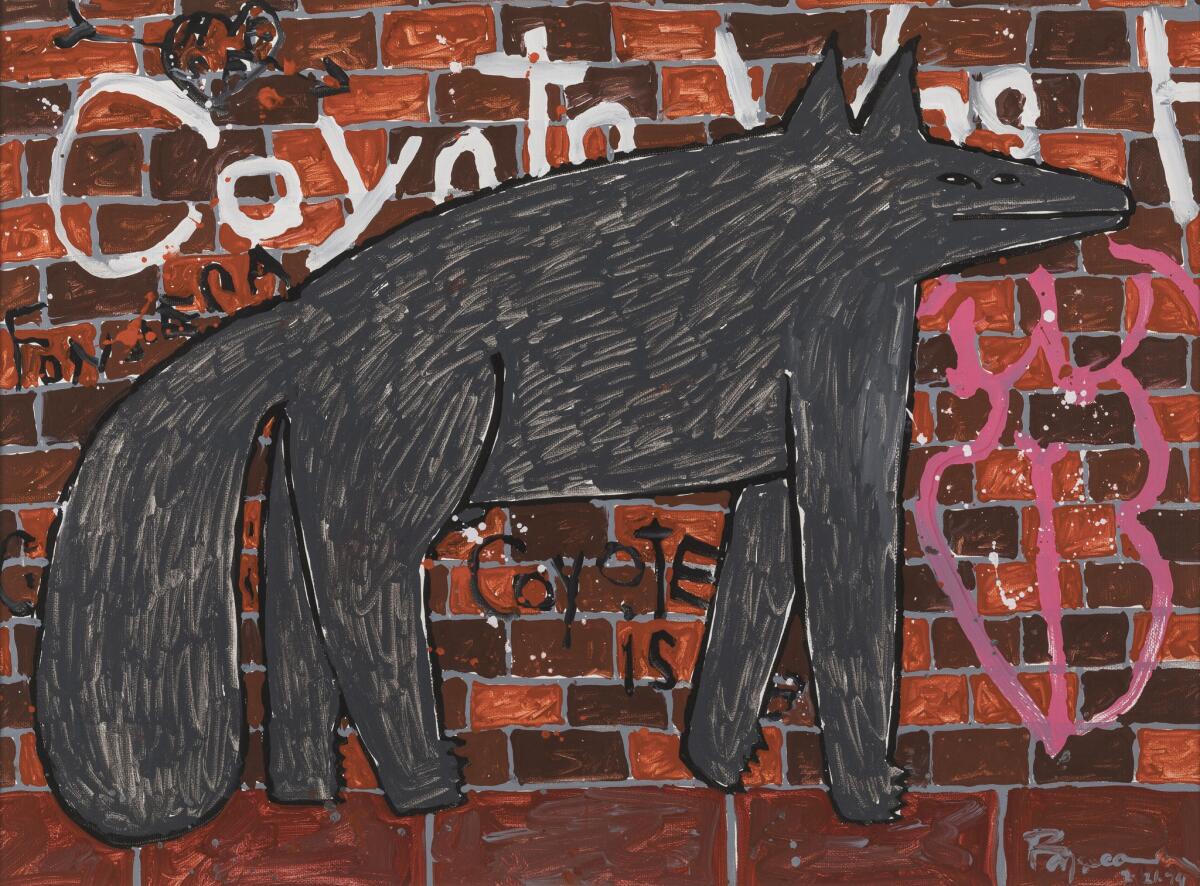
“The Allure of Matter: Material Art From China,” at the Los Angeles County Museum of Art. A group exhibition features contemporary Chinese artists who are deeply engaged with their materials, be it wood, fabric or assembled scraps of photography. The show spans four decades and features work by Ai Weiwei, Cai Guo-Chiang, Song Dong and many others. Through Jan. 5. 5905 Wilshire Blvd., Mid-Wilshire, Los Angeles, lacma.org.
“Indian Country: The Art of David Bradley,” at the Autry Museum of the American West. This survey exhibition examines the four-decade career of Bradley (Chippewa), who is known for producing vibrant, figurative paintings inspired by the Native experience — while also wryly poking at stereotypes and Hollywood tropes. Through Jan. 5. 4700 Western Heritage Way, Griffith Park, Los Angeles, TheAutry.org.
“The Foundation of the Museum,” at the Museum of Contemporary Art. This permanent collection exhibition marks the museum’s 40th anniversary with a display of history-making works, including Chris Burden’s “Exposing the Foundation of the Museum,” 1986, in which the artist dug up a portion of the museum’s floor, revealing its concrete foundations. Through Jan. 27. 152 N. Central Ave., downtown Los Angeles, moca.org.
Daniel Hawkins, “Desert Lighthouse.” The Los Angeles-based artist is obsessed with producing works that toy with ideas of grandiosity, failure and gestures that border on the Sisyphean. (One of his goals as an artist is to ultimately build a scale replica of the Hoover Dam.) Now, Hawkins has installed a 50-foot tall, fully functioning lighthouse in the Mojave Desert in the vicinity of Barstow. The piece even features a light to guide travelers through this rugged landscape. Directions and coordinates can be found on the website. On long-term view, Hinkley, Calif., desertlighthouse.org.
Twitter: @cmonstah
The biggest entertainment stories
Get our big stories about Hollywood, film, television, music, arts, culture and more right in your inbox as soon as they publish.
You may occasionally receive promotional content from the Los Angeles Times.



